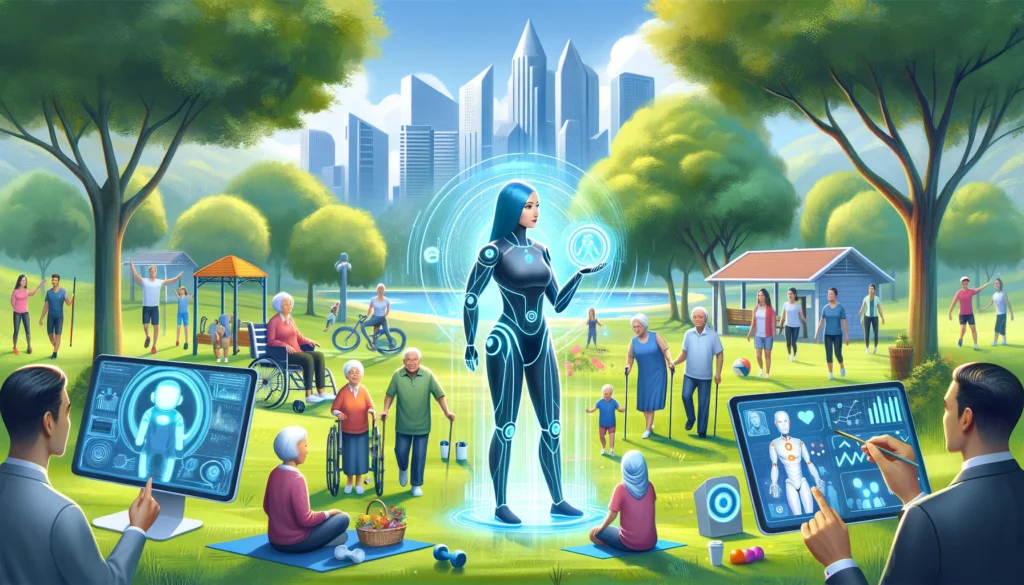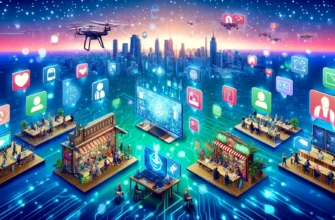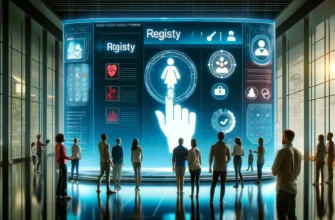Ah, Artificial Intelligence (AI) – humanity’s new best friend, or as some might argue, its future overlord. Before you chuckle or shudder at the thought of your smartphone outsmarting you, let’s consider the myriad ways AI enriches our lives. From algorithms that suggest the perfect pizza topping to complex systems driving cars better than that reckless neighbor of yours, AI is more than just technology; it’s the closest we’ve come to bottling genie magic. And like any good philosophical debate at a bar at 3 AM, the essence of AI pushes us to ask deeper questions about what it means to be human.

- 10 Benefits of Artificial Intelligence
- Efficiency and Automation
- Enhanced Decision Making
- Error Reduction
- Deeper Data Analysis
- Enhanced Customer Experiences
- Scalability of Services
- Advancements in Healthcare
- Environmental Monitoring and Conservation
- Accessibility
- Education and Personalized Learning
- 10 Facts About Artificial Intelligence
- Summary
- FAQ (Frequently Asked Questions About Artificial Intelligence)
- Why is AI so important?
- Is AI good or bad?
- Is AI making us lazy?
- Will AI get smarter?
- Who created AI?
10 Benefits of Artificial Intelligence
Efficiency and Automation
AI excels in handling tasks that, frankly, humans find mundane. Automation through AI doesn’t just mean replacing workers; it means augmenting human capabilities and freeing us up for creative and strategic pursuits. Imagine a world where no human ever has to do their own taxes again. Blissful, right?
Enhanced Decision Making
Unlike humans, AI isn’t swayed by emotions, fatigue, or the inexplicable desire to procrastinate. It analyzes data and provides unbiased decisions, helping industries from healthcare to finance make better choices. Yes, this means AI might save you from buying those neon-yellow sneakers online at midnight.
Error Reduction
AI has the ability to process information with a precision that is simply unattainable for us mere mortals. This precision is invaluable in fields like medicine, where a small error can have huge repercussions. Less “oops” in surgeries? Yes, please!
Deeper Data Analysis
Deep learning algorithms can crunch unimaginable amounts of data and find patterns that even the most caffeinated data scientist might miss. This not only leads to breakthroughs in science but also optimizes everything from stock trading to your weekly grocery shopping list.
Enhanced Customer Experiences
Ever chatted with a customer service bot? These AI-driven helpers can manage everything from your complaint about a broken coffee maker to advising you on your next pair of shoes, and they don’t get tired or judge your choices.
Scalability of Services
AI can handle increasing tasks without the need to scale human resources equally. This scalability helps businesses grow at an unprecedented pace. Basically, AI can manage a zillion tasks at once, unlike your coworker who can’t even handle a coffee without a crisis.
Advancements in Healthcare
AI in healthcare is like having a doctor who never sleeps and reads every medical journal the moment it’s published. From diagnostics to personalized medicine, AI is revolutionizing how we stay healthy.
Environmental Monitoring and Conservation
AI helps monitor climate change, track wildlife, and even manage our energy consumption. It’s like having Mother Nature’s little helper that’s always on duty.
Accessibility
AI technologies provide incredible support to people with disabilities, offering tools that enhance communication, mobility, and daily life. It’s empowering more of us to live independently and boldly.
Education and Personalized Learning
Imagine a classroom where every student gets real-time feedback and personalized lessons. AI makes this possible, adapting to the learning pace and style of each student. It’s like having a personal tutor who doesn’t charge by the hour.
10 Facts About Artificial Intelligence
- AI can learn to play video games – and excel at them!
- The first AI program was written in 1951.
- AI helps predict natural disasters, potentially saving thousands of lives.
- The AI market is expected to reach over $500 billion by 2024.
- AI is used by social media platforms to detect and manage inappropriate content.
- Self-driving cars use AI to navigate and avoid accidents.
- AI can create music, art, and even write stories.
- More than 80% of enterprises believe AI leads to greater competitive advantages.
- AI systems can detect diseases from images with higher accuracy than human experts.
- Chatbots are expected to handle 85% of customer service interactions by 2025.
Summary
From automating the mundane to tackling complex global challenges, AI is not just about making machines think; it’s about enhancing human life. As we stand on the brink of this AI-driven epoch, it’s crucial to harness this powerful tool responsibly, ensuring it serves humanity and not the other way around. And as for those still worried about AI stealing jobs – consider this: no robot could ever replace the human touch in poetry, empathy, or the perfect grilled cheese sandwich. Here’s to a future where AI and humans coexist in harmony, or at the very least, share the remote control.
FAQ (Frequently Asked Questions About Artificial Intelligence)
Why is AI so important?
AI is like that one friend who knows everything from quantum physics to how to get red wine out of your carpet – incredibly handy and sometimes mildly intimidating. Its importance lies in its vast range of applications, from revolutionizing healthcare by predicting diseases before they occur, to optimizing traffic flow in cities faster than you can say “rush hour nightmare.” AI helps in making decisions, sometimes even before we realize there’s a decision to be made. So, it’s not just important; it’s becoming indispensable.
Is AI good or bad?
Asking if AI is good or bad is like asking if a spoon is deadly. It’s all about context (and perhaps your level of creativity). AI, in essence, is a tool, and like any tool, its impact depends on how it’s used. It can help save lives through medical diagnostics and disaster response systems, or it could, you know, decide to take over the world. But let’s stick to using it for good, shall we?
Is AI making us lazy?
On one hand, AI is like the ultimate enabler of human laziness – “Alexa, tie my shoes!” isn’t quite possible yet, but we’re getting there. On the other hand, it frees up our time to engage in more creative or strategic tasks (or, let’s be honest, more Netflix binging). Whether AI is making us lazier or just more efficient is a perspective cocktail – half full or half empty, with a twist of techno-philosophy.
Will AI get smarter?
Not only will AI get smarter, but it’s also doing so at a pace that would make a quantum computer blush. The real question is, as AI becomes increasingly sophisticated and integrates deeper into our lives, how do we ensure it remains safe and beneficial? It’s like training a dragon – very cool, potentially risky, but ultimately a party trick if you can pull it off.
Who created AI?
While AI often seems like a mysterious, self-evolved entity from the digital ether, it was humans who kick-started this revolution. The concept of artificial intelligence was first dreamt up by the likes of Alan Turing, and later developed by pioneers such as Marvin Minsky, John McCarthy, and many other bright minds who probably spent a lot less time at parties than the rest of us. AI didn’t just create itself – though, giving it time, who knows?







